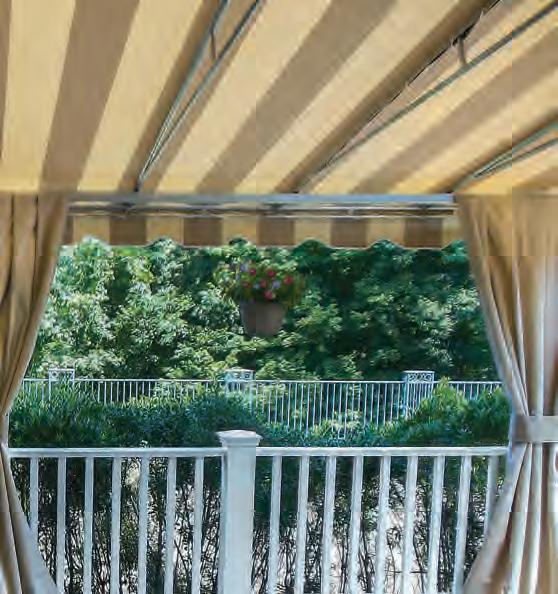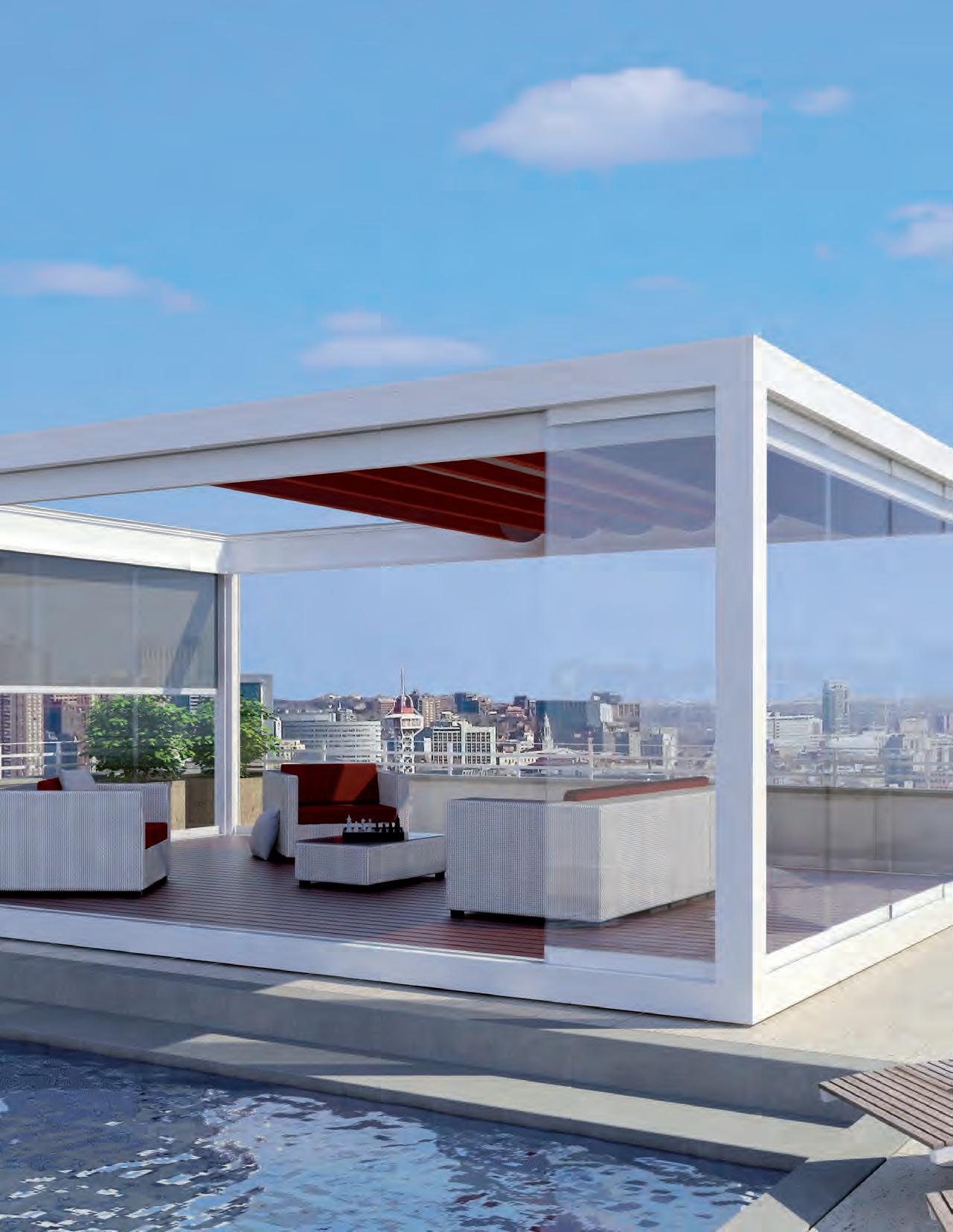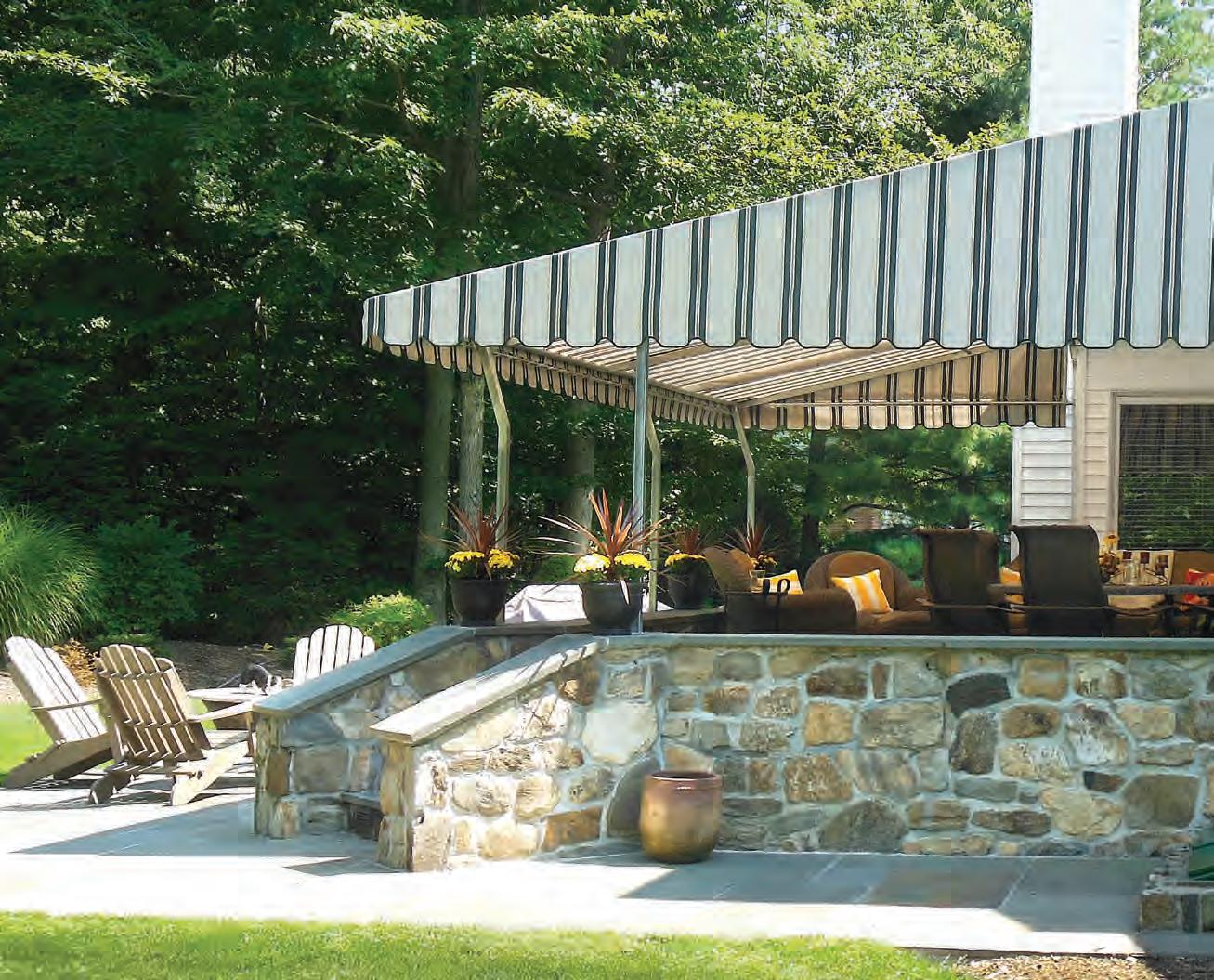
4 minute read
DURKIN’S INC. OWNER LEAVES BASEBALL MOUND AS TEENAGER TO JOIN FAMILY AWNINGS BUSINESS
from Raven Issue No. 24
On a warm spring afternoon in 1962, 13-year-old Tom Ginty had one foot on third base and both eyes on home plate. With his team leading the game, the high school freshman was only 60 feet away from adding to his team’s score.
“If you’ve ever played baseball, you certainly understand the adrenaline rush of standing on third base,” Ginty recalled. “Add in the fact that you’re poised to score, and you’re focused like a laser on reaching home. That is, until you spot your father trying to get your attention.”
Advertisement
Ginty’s father, Bernard, had driven to the field from his family business, Durkin’s, Inc., a producer of high-quality fabric products for commercial, residential and municipal applications, to ask his son a question. Or, rather, to make a statement.
“He said simply, ‘I need your help,’” Ginty said.
Ginty never made it to home plate, instead leaving the game early to learn he would be working part-time in the family business, installing awnings.
“It was all hands on deck at our company in the early 1960s,” he said. “Now that I was in high school, I was asked to join the business that my great-grandfather had founded. It was with an enormous sense of pride and responsibility that I accepted, and I’ve been part of the business ever since.”
Durkin’s was founded as a hat maker in a barn on Mallory Street in Danbury, Conn., in 1904 by Ginty’s great-grandfather, Patrick Durkin, an Irish immigrant, and his son Denis, who was born in America in 1886. At first, the company was making supplies for Danbury’s world recognized hatting industry – the city’s first hat factory was established in 1780 – but it quickly started producing custom shading products in response to a growing demand for residential and commercial shading applications.
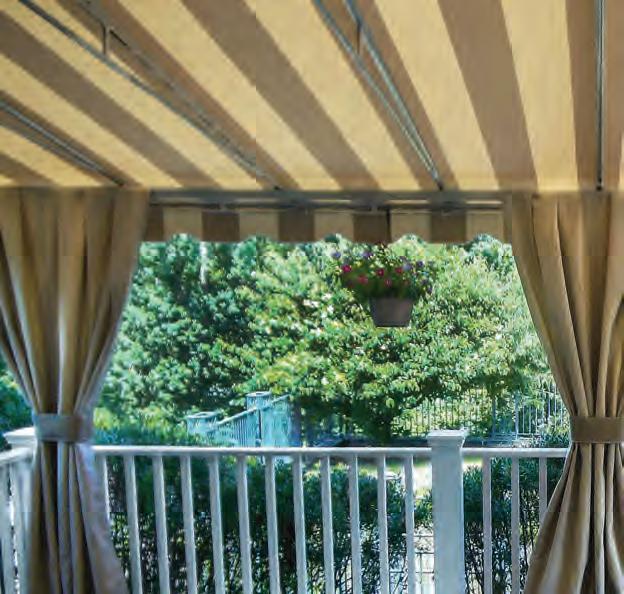
“Danbury was known as the ‘Hat City of the World’ in the early 1900s, when nearly a quarter of the hats sold in the United States were made in the city,” Ginty said. “But by the 1920s, labor issues and changing wardrobe styles left the hatting industry in serious decline.”
With the city and its major industry seemingly under siege, Denis Durkin took the reins as president of Durkin’s, Inc. The company was already responding to customer requests for residential and commercial awnings, and Denis made the decision to go all in as an awning company.
“Under my grandfather Denis’ leadership, the company introduced residential porch window awnings for installation within 30 miles of Danbury,” Ginty said. “This foresight was a major reason that Durkin’s survived the looming Great Depression, and it also set the company on a path of steady growth that would continue in the years leading up to and after World War II.”
Following the war, the United States was in the midst of an economic renaissance, especially in manufacturing communities with a skilled workforce already in place. The city of Danbury was ready to put workers from the once-thriving hatting industry back to work, and companies like Durkin’s were eager to oblige. The Durkin’s awning business was steadily growing, but there was another threat on the horizon – one the business did not anticipate.
“Two words: air conditioning,” Ginty said with still the slightest touch of exasperation. “By the mid-1950s, awning companies started to fail mainly because of the advent of air conditioning. It was a real struggle for Durkin’s to hang in there. The housing boom of the late 1950s actually made matters worse, because most new homes at the time included porches, which offered shade protection. The silver lining was that homes also included uncovered patios and decks, which offered new business opportunities for our company.”
It was a time of transition for Durkin’s as well. Denis sold the company to his son, William Durkin, and his daughter Rita’s husband, Bernard Ginty, in 1955. Seven years later, Tom Ginty was standing on third base, a conversation away from his entry into the family business, which the Ginty family fully acquired in 1976 after William Durkin retired.
Today, from his office located inside a 16,000-square-foot design and fabrication facility on Beaver Brook Road in the heart of Danbury, Ginty, 66, noted that state-of-the-art equipment allows Durkin’s to command total control over its product, giving customers a superior end product, delivered on time and at competitive prices.
Durkin’s produces high-quality fabric products for a wide array of applications, serving commercial, residential and municipal sectors across the country. The company’s product line includes retractable awnings for decks, patios and windows; commercial and storefront awnings; custom graphics; stationary awnings; motorized solar screens; party tent rentals and sales; truck covers and tarpaulins; boat lift covers; flags and flagpoles; industrial and environmental enclosures; and a number of other custom fabric products. The company also provides annual up-and-down service, cleaning, repairs, storage and maintenance services.
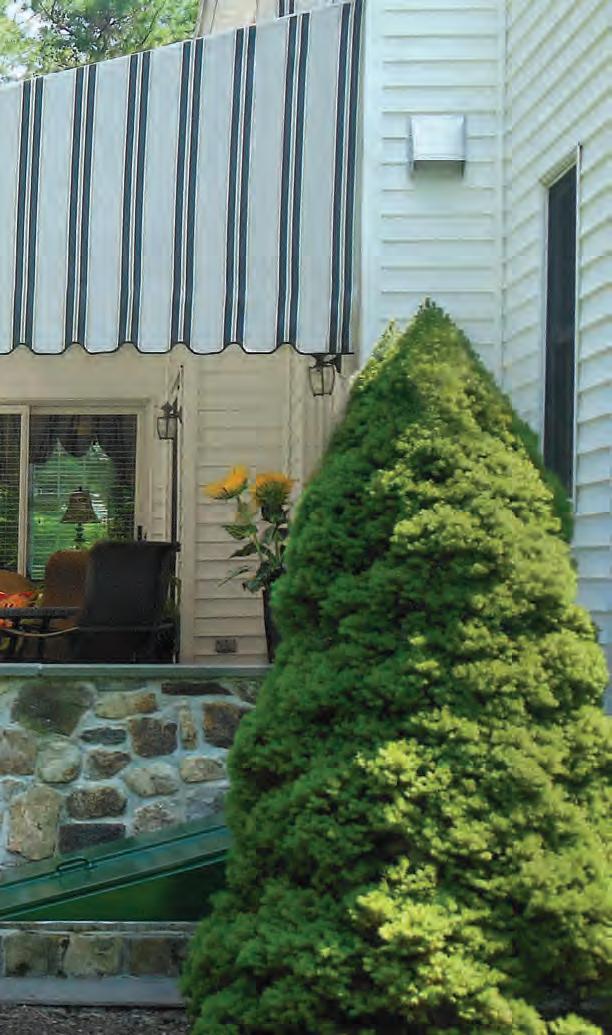
“We are now in our fifth generation of family leadership and continue to be recognized as one of the premier industry leaders in the Northeast,” Ginty said. “Our customer satisfaction rate exceeds 99 percent, so we must be doing something right.”
Ginty’s son, Jeff, represents the company’s fifth generation of family leadership. He joined Durkin’s full-time in 2010 and currently manages the company’s Tent & Event Services division, one of the fastest-growing segments of the company and one that relies on technology, including online and social media, to reach a new customer base.
“One of our greatest strengths as a company is our ability to adapt to new ways to reach and respond to customers,” said Jeff Ginty, 36. “We’ve been around for over 110 years because we are a solutions-oriented company. Our online presence is a critical part of our strategy to attract and retain customers.”
Also playing a critical role in the growth of Durkin’s has been brand recognition for Sunbrella® fabric, which is the company’s flagship offering, and support from Trivantage ®, Glen Raven’s distribution subsidiary. Trivantage provides the fabrics that Durkin’s needs, as well as business-building ideas and training.
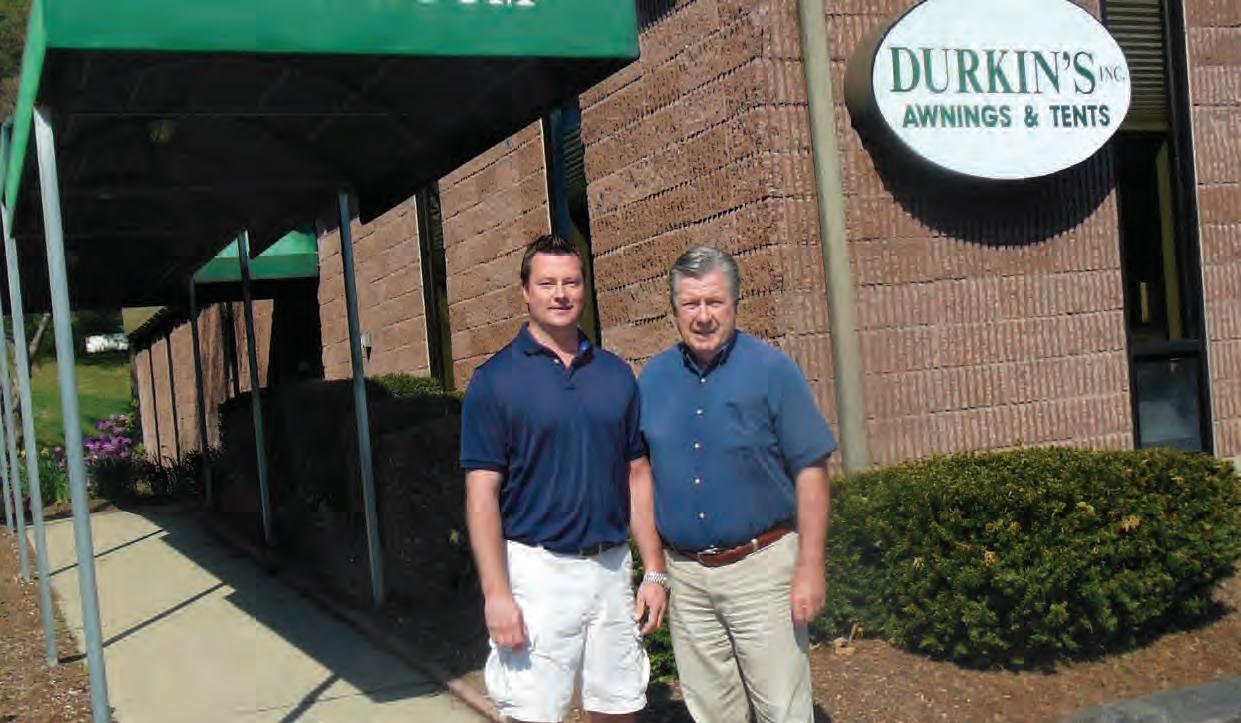
“We’ve been using Sunbrella fabrics for our awning applications since the 1960s,” Ginty said. “Cotton was the most widely available fabric at the time, but we made a strategic decision to switch to a fabric made of acrylic fibers.
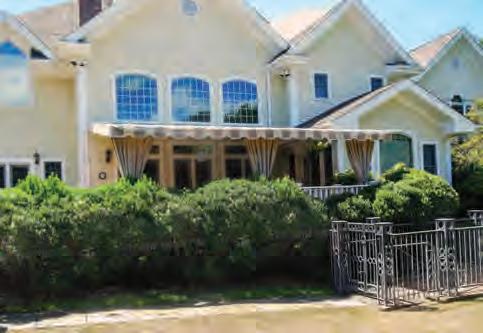
“In the 50 years since,” he continued, “the Sunbrella brand has become synonymous with the Durkin’s brand. Customers often say, ‘I want a Sunbrella awning,’ but I have to remind them that Sunbrella makes the fabric, not the awning. This speaks to the power of both brands in the minds of consumers.”
